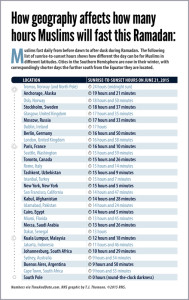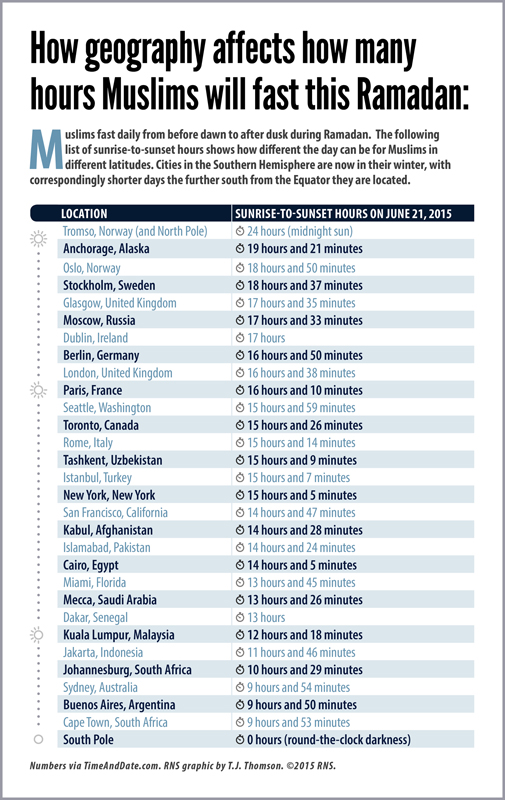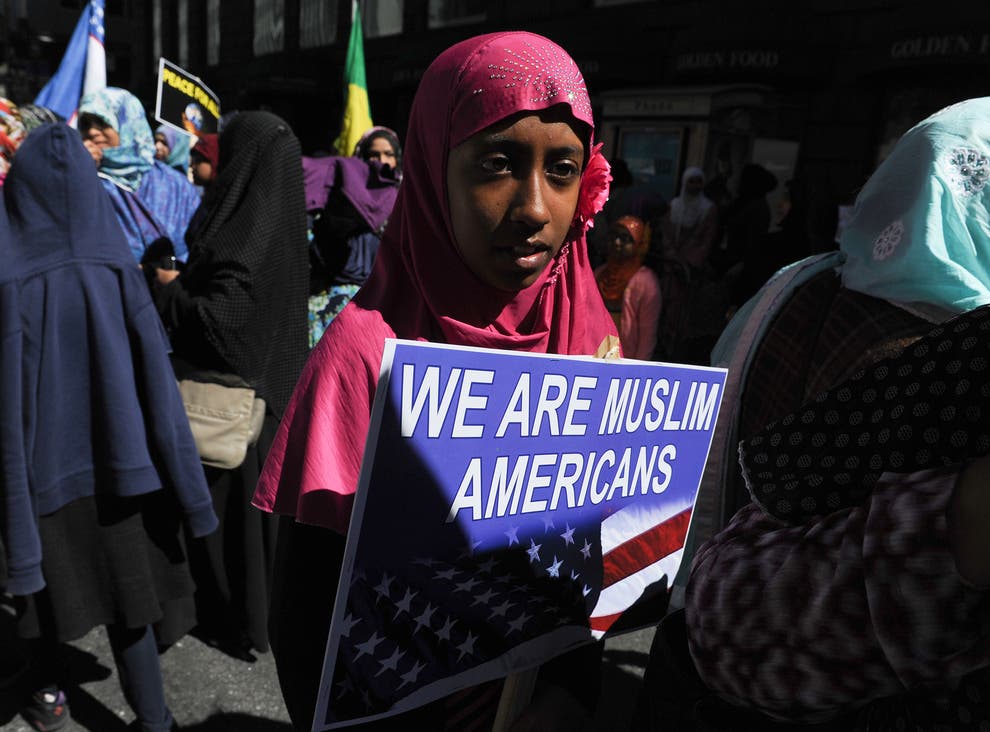(RNS) When the Islamic fasting month of Ramadan begins later this week, some Muslims around the world will face bigger challenges than others. The Quran is clear that the fast should last from before dawn to after dusk, but says nothing about how many hours that might be.
Since Islam has spread from its Arabian heartland to the far corners of the earth, Muslims who live in further north must fast several hours longer than those in Mecca. On the year’s longest day, June 21, some could end up fasting for as long as 20 hours per day.
Usama Hasan, a British Islamic scholar, thinks this makes Ramadan fasting unbearable for many Muslims living in northern Europe and Canada, especially the old and children just beginning to observe the practice. It also prompts many Muslims to give up fasting altogether during the summer, he said, or sneak a secret snack to help them get through the long days.

Hasan, an astronomer with a Ph.D. in physics, describes his interpretation of Islam as “traditionalist-rationalist” and says: “I’m trying to express Islam as it is lived in today’s context.”
Another change he advocates is determining the start of an Islamic month, and therefore the beginning of Ramadan, by scientific calculations.






